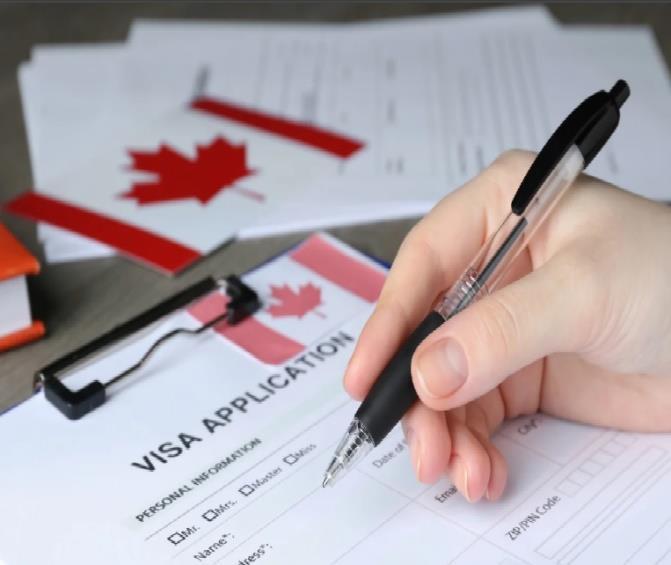
Planning an exciting trip to Canada? Before you start mapping out your itinerary, it’s essential to understand the visa rules that could shape your journey. Whether you’re visiting for leisure, business, or study, knowing the requirements ahead of time can help you avoid unnecessary stress, save valuable time, and prevent unexpected delays at the border. Discover what you need to do to get Canada visa fast, so you can fully focus on experiencing Canada’s vibrant cities, breath taking natural landscapes, and rich cultural treasures with total peace of mind.

Do You Need a Visa to Visit Canada?
Before you dive into planning your Canadian adventure whether it’s exploring Vancouver’s bustling food scene, hiking in Banff, or attending an international conference in Toronto there’s one key question to answer first: Do you need a visa?
Not everyone does, but many travelers do, and the rules vary based on your nationality, the purpose of your visit, and the length of your stay. Canada offers an easy-to-use official online tool where you can quickly check your situation. Depending on your answers, you might need:
A Visitor Visa (Temporary Resident Visa)
An Electronic Travel Authorization (eTA)
Or, in some cases, no visa at all
Taking a few minutes to check your visa requirements early will save time and prevent border complications later.
Why You’re Traveling Matters
Before filling out any forms, pause to define the true purpose of your trip. Your travel purpose directly affects the type of visa or permit you need, and in some cases, determines if you even need a visa at all. Here’s how common reasons for visiting Canada fit into the visa system:
Tourism & Sightseeing: Visiting famous attractions, friends, or family usually requires a Visitor Visa or an eTA, depending on your nationality.
Business & Conferences: If you’re attending meetings, seminars, or trade fairs, you typically need a Visitor Visa, plus documents explaining your professional activities.
Short-Term Study: Enrolling in a course under six months usually only needs a Visitor Visa; longer programs require a Study Permit.
Work & Internships: Any form of paid work even short-term contracts, freelance gigs, or performances requires a Work Permit.
Family Visits: Visiting close relatives may need additional proof, like documents showing your relationship or financial means.
Medical Treatment or Other Reasons: You might need extra documents, like medical letters, official invitations, or specialized permits.
Clarifying your purpose ensures you choose the right visa category and helps prevent problems at the border.
Situations When You Definitely Need a Visa
Some scenarios make applying for a Visitor Visa (Temporary Resident Visa) mandatory, including if:
Your passport is from a country that isn’t eligible for visa-free entry or an eTA
You’re planning to stay longer than six months
You intend to work, study, get married, or join family members living in Canada long-term
You’ll perform in paid concerts, sports events, or other commercial activities
You have a past immigration refusal, criminal record, or unresolved legal issues
Skipping the visa process when it’s required can lead to denied boarding, refusal at the border, and even longer-term travel bans.
Avoiding Common Visa Mistakes
Canada’s visa rules can feel complex especially for first-time travelers. Here are frequent pitfalls to avoid:
Applying under the wrong category (e.g., using a tourist visa to attend a paid event)
Assuming an eTA is enough when you actually need a Visitor Visa
Working without the correct Work Permit even unpaid internships may require authorization
Overstaying your visa, which could impact future travel plans
Providing inconsistent information between your visa application and your answers at the border
Careful research and honest, complete applications are your best defense against these mistakes.
How Long It Takes and Why You Should Plan Ahead
Getting a Canadian visa isn’t always instant. Depending on your country and visa type, you might need to:
Collect documents like bank statements, hotel reservations, travel history, and letters of invitation
Schedule and attend a biometrics appointment for fingerprints and photos
Wait out processing times that can vary from days to weeks
To reduce stress, start preparing your application at least six to eight weeks before your planned departure.
Want to Get Your Canada Visa Fast?
If your trip is soon and time is tight, here are practical ways to speed up your visa process:
Use Canada’s online visa application system to track updates in real time
Submit complete documentation upfront—missing papers slow down processing
Respond quickly to any requests from IRCC (Immigration, Refugees and Citizenship Canada)
Check your passport’s validity and ensure it aligns with the details in your application
Consider priority or express processing options, if available
Stay Updated: Travel Rules Can Change
Canada’s visa policies sometimes change due to global events or political decisions, like:
Health crises (such as COVID-19)
New diplomatic agreements or visa exemptions for specific countries
Enhanced border security measures
Small Details Make a Big Difference
It’s easy to overlook small but important steps yet these can be the difference between a smooth entry and unexpected trouble:
Double-check your visa category and conditions
Keep both printed and digital copies of your approval documents
Prepare supporting evidence, even if it’s not strictly required
Answer questions from border officers honestly and consistently
Prepared travelers tend to clear immigration faster and with less stress.
Your Trip Starts with a Single Question
Your Canadian adventure starts not at the airport gate, but with asking: Do I need a visa?
Confirm your eligibility, choose the correct visa type, and start your application early. Whether you need an eTA, Visitor Visa, or a special permit, careful planning helps you travel confidently.
If you’re pressed for time, remember: complete applications, online submissions, and priority services (if offered) can help you get Canada visa fast.
Quick Tips to Keep Your Travel Plans on Track
Apply early, ideally six to eight weeks before travel
Use Canada’s online portal for quicker processing and status updates
Upload and submit all documents together
Keep extra copies of everything you submit, including your application receipt and visa approval
Monitor your email or account for follow-up requests
Before you finalize flights and hotels, make sure to check if you need a visa based on your nationality and the reason for your trip. This simple, early step helps you avoid last-minute stress and makes your journey smoother. And if time is limited, look into trusted options to get Canada visa fast so you can focus on what really matters: enjoying Canada’s vibrant cities, spectacular nature, and unforgettable experiences.
